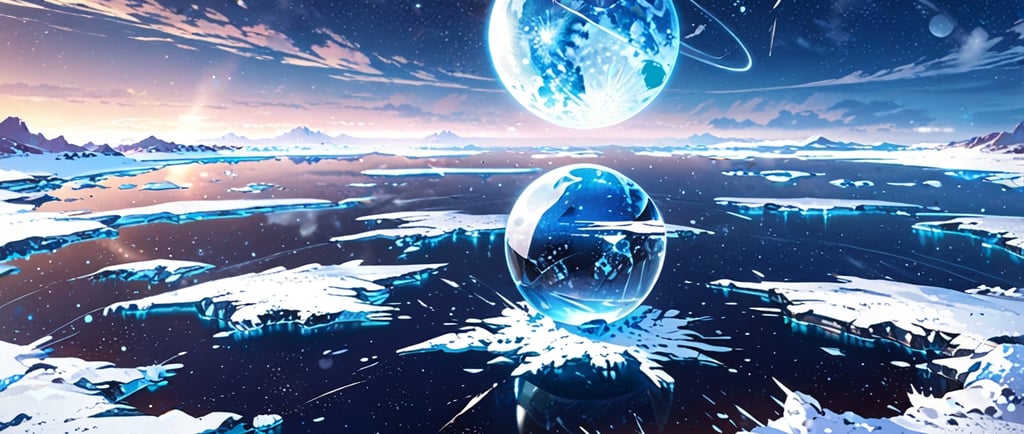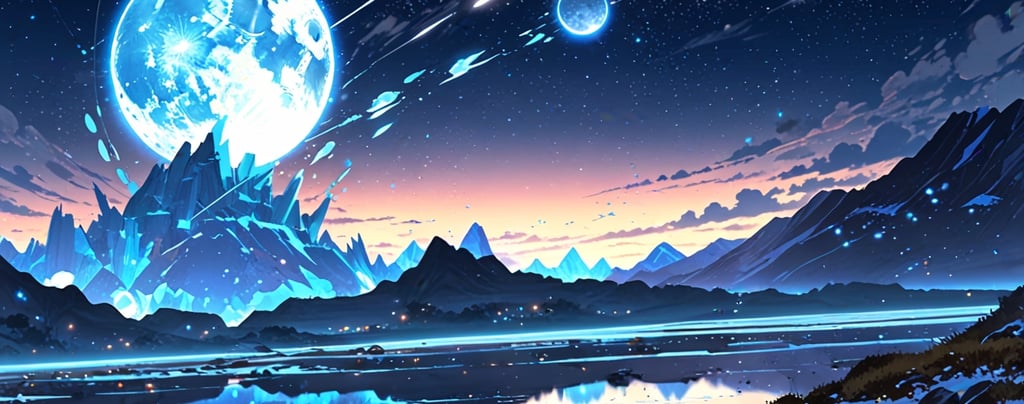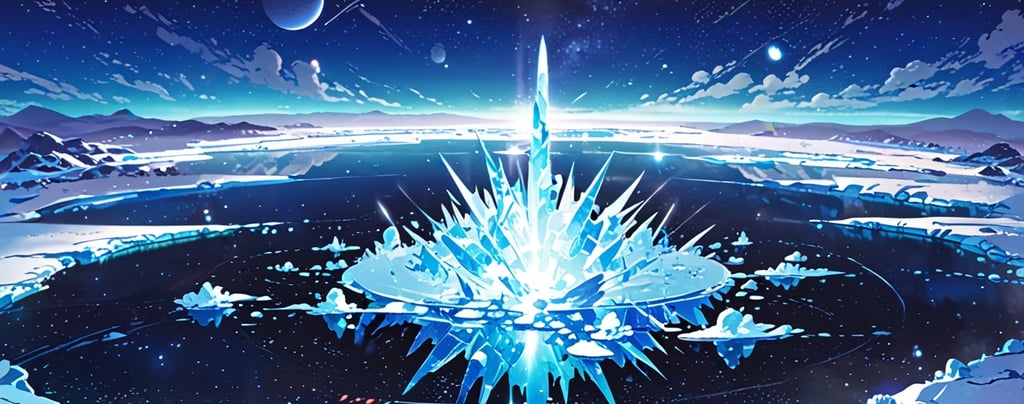Frozen Water Beyond Our Solar System: Ice on Exoplanets
Discover the existence of frozen water beyond our solar system. Explore how ice forms on exoplanets, moons, and comets, and its implications for alien life. Uncover the mysteries of ice in the universe!
Black Heart
5/19/20253 min read


Can Frozen Water Exist Beyond Our Solar System?
Introduction
I’ve always thought of water as the ultimate cosmic clue. Whenever scientists talk about “life out there,” water is the first ingredient on the list. But here’s something I started wondering: can frozen water, good old ice, exist beyond our solar system? We see comets, icy moons, and glaciers here at home, but what about light-years away? The answer is surprisingly fascinating, and it says a lot about how life might, or might not, exist in the universe.
Where Could Frozen Water Exist Outside Our Solar System?
The short answer? Pretty much everywhere. Water is one of the most common molecules in space. Astronomers have already detected water vapor, icy dust, and frozen exoplanets orbiting distant stars. Anywhere you have the right conditions, low temperatures, and the presence of oxygen and hydrogen, you can have frozen water.
Some likely candidates:
Exoplanets in cold zones – Worlds orbiting far from their stars, much like Neptune or Pluto in our solar system.
Rogue planets – Planets drifting through the darkness between stars, with no sun to heat them.
Comet-like bodies – Icy fragments in other planetary systems, just like our Kuiper Belt and Oort Cloud.
Icy moons around exoplanets – If other solar systems have giant planets, they probably have icy satellites too.
Why Frozen Water Matters for Life
Here’s why I think this is important: ice isn’t just frozen water, it’s potential. On Earth, glaciers and ice caps lock away ancient records of climate, chemistry, and even microbes. If frozen water exists beyond our solar system, it could preserve life’s building blocks for billions of years.
Think about Europa or Enceladus here in our own backyard: beneath their icy crusts, we suspect vast oceans exist. If the same thing is happening on exomoons around distant gas giants, those frozen shells could be hiding alien oceans below.


How Do We Detect Frozen Water Light-Years Away?
Okay, so how can we know ice exists so far away when we can’t exactly send a probe there? Astronomers use:
Spectroscopy – Light from distant stars and planets carries fingerprints of water molecules.
Infrared telescopes (like JWST) – They can detect water vapor, ice signatures, and frozen compounds.
Observation of comets – In other systems, dimming patterns suggest icy bodies orbiting stars.
In 2011, scientists even detected water ice in the dust surrounding a young star system, proof that ice forms naturally during planet formation.
Could Frozen Water Exist on “Super-Earths”?
Imagine an Earth-like planet, but larger, colder, and farther from its star. On such worlds, entire continents could be covered in glaciers thousands of kilometers deep. Some might have “snowball planet” conditions, where oceans freeze solid and ice stretches from pole to pole.
Would life stand a chance there? Maybe not on the frozen surface, but under that ice, geothermal heat or tidal forces could still keep subsurface oceans liquid. That’s the same logic fueling the search for life under Europa’s crust.
What Frozen Water Tells Us About the Universe
Here’s what I find so mind-blowing: frozen water is a universal time capsule. It can lock away organic molecules, preserve chemical reactions, and act as storage for life’s raw materials. If we discover frozen water on an exoplanet or exomoon, it tells us three big things:
The planet had the right chemistry for water.
It stayed cold enough to preserve it.
There’s at least a chance life could have emerged, or still might.


Key Points
Frozen water almost certainly exists beyond our solar system.
Likely places: cold exoplanets, rogue worlds, icy moons, comet belts.
Ice could preserve the chemistry of life for billions of years.
Advanced telescopes like JWST are already picking up icy signatures.
Ice worlds may hide underground oceans where alien life could thrive.
Final Thoughts
I guess the simple answer is yes, frozen water almost definitely exists out there. But the deeper question is what it means. Ice isn’t just frozen stuff; it’s potential evidence of alien chemistry, alien oceans, maybe even alien life. Next time you see ice in your drink, think of it as a mini version of a cosmic building block, a clue that connects Earth to countless hidden worlds across the galaxy.
🔗 Related Articles from EdgyThoughts.com
🌐 External Resource
More here: Wikipedia – Extraterrestrial Water